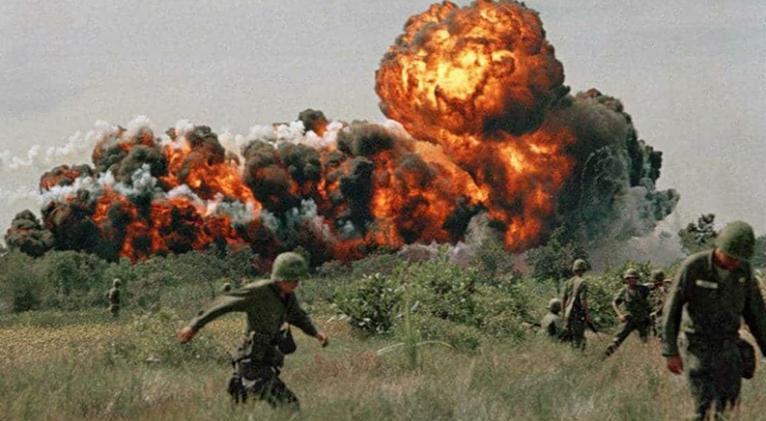Wars are Never Local
especiales

We already know that armed conflicts are a very serious matter. There’s no positive side; wars cause destruction in every sense. In addition to the social impact of death and illness, and the crippling of families, forever marked by pain, absence, and trauma, they also destroy heritage, burying culture and history.
We already know all this, and it's regrettable that even so, no peaceful solution can be found to ongoing conflicts. However, one issue that’s rarely mentioned is the huge impact they have on the environment. The consequences for the planet are serious, and many persist for too long, like an open wound.
Just think about how wars have become unprecedented events. Nothing is anymore about troops on horseback or on foot fighting with the use of edged weapons or rifles; the world of weapons has long been enormously developed with the idea of being deadly and finishing off the enemy in one sweep.
Increasingly powerful weapons and potent munitions generate explosions and create clouds of smoke that are nothing more than gases, toxins, and a host of waste products like heavy metals such as lead, mercury, and uranium, which also contaminate soil and water.
In other words, the damage is felt by all ecosystems because bombings in built-up areas destroy facilities, and these collapses generate dust clouds that carry substances like asbestos, which affect the quality of the air we breathe.
On top of it all, armies devastate biodiversity because they often cut down trees en masse to build military infrastructure enough to deprive the enemy of cover. Furthermore, bombs and landmines also eliminate everything in their path, from plants to wildlife.
This deforestation is irreversible, and we already know how long it takes for a small forest to form. Imagine this scenario in various places on Earth and you'll understand why there are habitats and animal populations that no longer exist or are seriously threatened, in the brink of extinction.
This is without even considering chemical and nuclear weapons, which are the ultimate in humanity's obsession with mass extermination. Let's remember how World War II ended and how those detonations against the Japanese cities of Hiroshima and Nagasaki in 1945, along with their previous experiments, were likely the driving force behind climate change.
Yes, because there’s no way to control such an event. If World War II saw the planet suffer enormous amounts of polluting emissions into the atmosphere, with nuclear bombs the escalation was generous. Both the tests and the explosions at that time had significant health effects, which have been very evident in genetic malformations and cancer, for example.

It’s estimated that soil contamination will remain for thousands of years, and a similar situation occurs with the alteration of marine ecosystems due to persistent radiation. The air is one of the environments that suffers the most because the fires and explosions generated by the conflicts release large amounts of carbon, CO₂, and fine particles. This pollution spreads with the wind and reaches everyone.
Let's not think that the conflicts are limited to the war zone. No, there’s no real bubble; what happens in the Middle East will reach us as far as the Caribbean. Let's have no doubt about it. Let's see how the melting of glaciers, so far away, affects us somehow.
Let's face it, the war industry contributes to global warming and deteriorates population settlements. In addition to the damage to facilities, water and sewage systems, crops and fertile soil are lost, and desertification is accelerated. And what does this cause? Who does it affect?
That's not all: species migratory routes are altered, and this impacts biodiversity because life is a system. A similar situation occurs with oil spills in rivers and seas. It’s disastrous if the attacks reach nuclear power plants. In that case, the chemical risk would be massive and could cause a regional radioactive disaster.
The media's focus on war tends to focus on political and humanitarian issues, but the impact on nature is huge. Natural resources are limited, and recovery is sometimes estimated to take centuries. This is too long a timeframe to view it positively, especially since we already live on a planet that is already feeling the direct consequences of climate change.
Translated by Amilkal Labañino / CubaSi Translation Staff














Add new comment